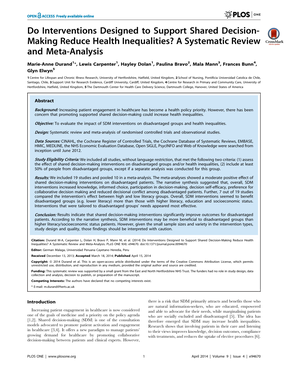Introduction
Have you ever found yourself confused about the terms “method” and “methodology” while conducting research or writing a scientific paper? You’re not alone. Many researchers, students, and professionals often use these terms (methodology and method) interchangeably, but they actually have distinct meanings and implications.
In this article, we’ll explore the key differences between method vs methodology, and why understanding this distinction is crucial for effective research and writing, especially when trying to answer your research question.
What is a Method?
A method including research method refers to a specific procedure, technique, or tool used to collect, analyze, or interpret data within a research study. It is a concrete, well-defined set of steps that researchers use to gather and process information to support or reject the research hypothesis.
Methods are often specific to a particular discipline or field of study, and they can be either quantitative methods (involving numerical data and statistical analysis) or qualitative methods (involving non-numerical data, such as observations or interviews).
Examples of methods include surveys, experiments, case studies, and statistical analysis techniques, such as regression or factor analysis. These are all examples of when to use specific methods to collect your data and conduct your research. For more information on different types of research, check out our article on theoretical vs. applied research.

What is a Methodology?
In contrast to a method, a methodology refers to the overarching approach to both quantitative research and qualitative research. It encompasses the overall strategy, design, and philosophical assumptions that guide the selection and application of specific methods.
A methodology provides a framework for understanding the research topic, formulating research questions, and interpreting the findings. It considers factors such as the researcher’s theoretical perspective, the nature of the research problem, and the intended audience for the research.
Examples of methodologies include grounded theory, ethnography, phenomenology, and action research. These methodologies serve as a justification for using a particular set of methods to conduct your research and answer your research question. If you’re a PhD student looking to strengthen your research skills, our writing tips for PhD students may be helpful.
Key Differences between Method and Methodology
1. Scope and focus: A method focuses on the specific tools and techniques used to collect and analyze data, while a methodology encompasses the broader approach to a particular research, including the philosophical assumptions and theoretical perspectives that guide choice of methods. 2. Level of abstraction: Methods are concrete and specific, providing a step-by-step guide for data collection and analysis methods. Methodologies, on the other hand, are more abstract and conceptual, dealing with the overarching principles and strategies that inform the research process. 3. Role in the research process: Methods are applied during the data collection and analysis stages of research, while methodologies shape the entire research process, from the formulation of the research question to the interpretation of the findings. Understanding this difference is essential when writing a research proposal or a research paper in your research approach. 4. Flexibility and adaptability: While methods are often fixed and standardized, methodologies can be more flexible and adaptable to the specific needs and contexts of a research study. Researchers may combine or modify methodologies to better suit their research aims or objectives and the nature of the problem being investigated.
The Importance of Understanding the Difference Understanding the difference between method and methodology is crucial for several reasons:
1. Clarity in research design and communication: Clearly distinguishing between methods and methodologies helps researchers design more coherent and rigorous studies. It also enables them to communicate their research effectively to others, including peers, funding agencies, and the wider public. If you struggle with writing efficiently, our article on how to write faster may offer some useful strategies. 2. Proper selection and application of methods and methodologies: By understanding the distinction between methods and methodologies, researchers can more effectively select and apply the appropriate tools and approaches for their specific research goals. This helps ensure that the research is valid, reliable, and relevant to the problem being investigated. 3. Implications for the quality and reliability of research findings: Confusing methods and methodologies can lead to inconsistencies, errors, or limitations in the research process, which can ultimately affect the quality and reliability of the findings. By properly understanding and applying these concepts, researchers can produce more robust and trustworthy results. The use of AI in research is also becoming increasingly important for enhancing the accuracy and efficiency of data analysis.

Real-World Examples
Let’s consider a couple of examples to illustrate the difference between method and methodology in practice:
Example 1: A researcher wants to investigate the impact of social media on adolescent mental health. The researcher’s methodology may be a mixed-methods approach, combining quantitative surveys with qualitative interviews to gain a comprehensive understanding of the issue.
The specific methods used could include an online questionnaire to collect data or any type of data on social media usage and mental health outcomes, as well as semi-structured interviews with a subset of participants to explore their experiences in-depth.
Example 2: A researcher plans to study the effectiveness of a new teaching strategy in primary schools. The research methodologies may be a quasi-experimental design, comparing the performance of students in classrooms using the new strategy with those using traditional methods.
The specific methods used could include pre- and post-tests to measure student learning outcomes, classroom observations to assess teacher implementation of the strategy, and focus groups with teachers and students to gather qualitative feedback.
In both examples, the methodology provides the overarching framework and approach for the research, while the methods are the specific tools and techniques used to collect and analyze data within that framework.
Confusing or conflating these concepts could lead to a misalignment between the research objectives and the actual data collected, potentially undermining the validity and impact of the findings.
Methods vs. Methodologies: Key Distinctions for Effective Research
In summary, while methods and methodologies are closely related, they serve distinct purposes in the research process. Methods are the specific tools and techniques used to collect and analyze data, while methodologies are the broader approaches that guide the selection and application of those methods.
Understanding this distinction is essential for designing rigorous and effective research studies, communicating research findings clearly, and ensuring the reliability and impact of the results. As you embark on your own research journey, whether you’re writing a PhD proposal or conducting a study, keep this important distinction in mind to strengthen your research skills and outcomes.
FAQs
Q: What is the purpose of the methods section in a section of a research paper? The methods section in a research paper describes the specific procedures, techniques, and tools used to collect and analyze data in a study. It provides a detailed account of how the research was conducted, allowing other researchers to understand, evaluate, and potentially replicate the study.
Q: Is the study of methods the same as methodology? No, the study of methods focuses on the specific tools and techniques used in research, while methodology refers to the broader philosophical and strategic approach that guides the selection and application of those methods.
Q: What is the difference between the methodology section and the method and methodology section in a research paper? The methodology section discusses the overall approach to the research, including the philosophical assumptions, research design, and rationale for the chosen methods. The method and methodology section, on the other hand, combines the description of the specific methods used with the broader methodological framework.
Q: Can several methods be used in research? Yes, researchers often apply several methods in a single study to gather and analyze data from different perspectives. This approach, known as triangulation, can help increase the validity and reliability of the findings.
Q: How are methods and methodologies used in research? Methods are the specific tools and techniques used in research to collect and analyze data, such as surveys, experiments, interviews, or statistical tests. Methodologies, in contrast, provide the overarching framework and approach that guide the selection and application of these methods based on the research objectives, philosophical assumptions, and the nature of the problem being investigated.
Q: Can methods and methodologies be applied to UX research? Yes, UX research relies on various methods and methodologies to gather insights into user behavior, preferences, and experiences. For example, user interviews, usability testing, and surveys are common methods used in UX research, while user-centered design and lean UX are examples of methodologies that guide the overall approach to UX research and design.
Q: What methods and methodologies are used in experimental research? A: Experimental research typically involves methods such as randomized controlled trials, A/B testing, and factorial designs to manipulate variables and measure their effects on outcomes. The methodology guiding experimental research is often rooted in the scientific method, which emphasizes hypothesis testing, control groups, and the systematic manipulation of variables to establish cause-and-effect relationships. These methods are crucial for conducting rigorous analysis of the research methods and ensuring the validity of the findings.









